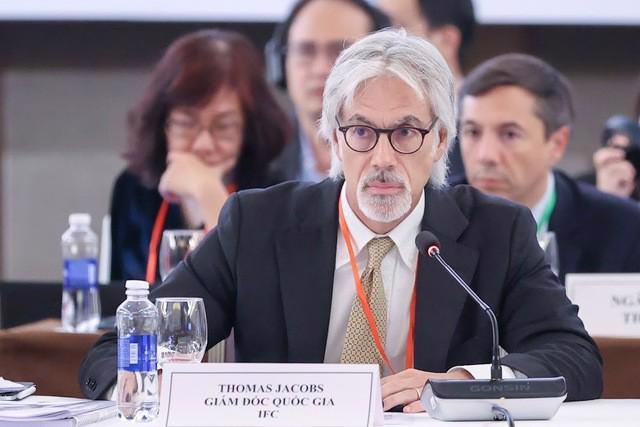Climate change poses a mounting economic threat to Vietnam, warned Thomas Jacobs, Vietnam Country Manager for the International Finance Corporation (IFC). Speaking to government and business leaders at the Vietnam Business Forum, he cited a World Bank report estimating that climate impacts cost Vietnam 3.2% of GDP in 2020, with losses projected to reach up to 14.5% of GDP by 2050.
"These reports evoke serious thoughts about Vietnam's future," Jacobs declared. He emphasized that achieving the nation's ambitious goals – a developed economy by 2045 and net-zero emissions by 2050 – demands swift action to increase climate resilience, reduce carbon emissions, and shift the economy towards sustainability.
The challenge comes with a hefty price tag, estimated at 6.8% of Vietnam's GDP annually, totaling $368 billion by 2040. Jacobs noted that the private sector must provide half of this capital, underscoring the critical role of foreign direct investment (FDI).
FDI brings technology, ideas, and capital necessary for Vietnam's green transformation. However, Jacobs stressed that investment must not come at the expense of the environment. "Every business investing in Vietnam needs a strong commitment to green growth and a sustainable culture throughout its organization," he said.
Jacobs outlined a comprehensive vision where companies integrate green strategies with environmental, social, and governance (ESG) policies. He called for board-level commitment to ensure these principles translate into actions that benefit businesses and the broader economy.
Ultimately, sustainable development will require a concerted effort. "It's not just FDI, but domestic businesses, banks, regulators, and the government working together," Jacobs emphasized, highlighting that organizations like the IFC support this transition.









 Google translate
Google translate